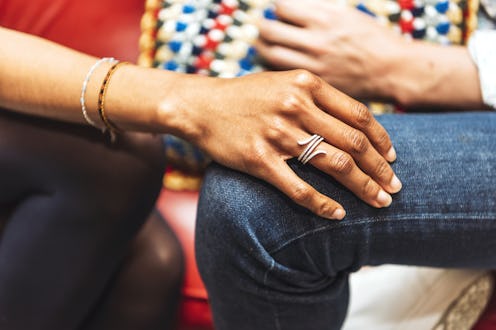
Transgender Awareness Week, observed each year between Nov. 13 and 20, culminates with the Transgender Day Of Remembrance (TDOR). This day, and the week the precedes it, are often used to talk about transphobic violence against transgender people, particularly women of color throughout the year. And while awareness of this violence, at the intersection of structural racism and transphobia, needs to be an ongoing part of the conversation about being trans in this country, typical conversations about Trans Awareness Week (TAW) don’t always leave room for the fact that trans people are already keenly aware of this violence. Only focusing on awareness of the link between trans communities and violence doesn't allow space for trans joy, trans accomplishments, and advocacy for structural changes that keep trans people safe in the midst of increased visibility.
It’s important to remember that trans folks have a long and rich history in society. “Trans people have existed since the beginning of time,” Van Bailey, a member of the Trans Advisory Board (TAC) for the National Black Justice Coalition (NBJC) said in a statement emailed to Bustle. “We are not new. We are not a trend. We are members of your families and communities. We exist and we are not going anywhere.”
But the family members of many trans people continue to not see it that way. “Transgender Awareness Week is, for me, just something my family uses as an excuse to go on rants about how people like me are ruining the country,” Cheyenne, a 19-year-old trans woman, tells Bustle.
In the face of the kinds of awareness that can create more suffering, it can be hard to find solace and ways to celebrate ourselves. But each year of living can be a victory. “As a Black, Trans non-binary person, each year that I am privileged enough to survive is a year to celebrate and reflect on,” August Clayton, 22, a student and organizer, tells Bustle.
Amidst conversations about the murders of Black and brown trans women, their lives are often forgotten. During this week in particular, Senior Minister and NBJC and TAC member Carmarion D. Anderson tells Bustle in an email that people should “give thanks for their lives, for their teachings, and their beautiful glow they offered to the world.”
Feeling hyper-visible during a week that often reminds us of our mortality and fallen community is incredibly exhausting.
Clayton, an activist with Advocates for Youth, which works towards sexual health equity, says that TAW needs to be about more than awareness of trans death and suffering. “Cis folks should know that we are more than our rising death toll. We have dreams, love interests, build families, and are nuanced communities; choose to center our lives and continue to act on injustice.”
In order to honor those dreams, they tell Bustle, it’s important to do more than create awareness. “A tangible way of showing up for Black trans folks leading up to TDOR is to find organizations who are already doing the work and donate your money or talents to them; be that giving direct funds, grant-writing, social media management, etc. Black Trans Travel Fund and Emergency Release Fund are two of many who are dedicated to the liberation of trans folks.”
As for how to observe TAW for yourself when you’re trans or non-binary, Cheyenne tells Bustle that caring for herself needs to come first. “I try to get as much sleep as I can. [...] I would like Black trans and non-binary folks to know that it is OK to allow yourself to rest,” Clayton says. “Feeling hyper-visible during a week that often reminds us of our mortality and fallen community is incredibly exhausting."
You may feel like the work won’t get done if you don’t do it, but give yourself grace, time to grieve and time to reset. Choose yourself and your health.” That choice can be exhausting in itself, but sometimes — perhaps especially during TAW — self-love is the most radical thing trans and non-binary people can do for ourselves.